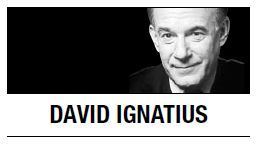 “We have the Europe we deserve,” admitted French Prime Minister Manuel Valls on Wednesday. The question is how Europeans can build the security structures they need.
“We have the Europe we deserve,” admitted French Prime Minister Manuel Valls on Wednesday. The question is how Europeans can build the security structures they need.
The first requirement is solidarity, within each country and among the 28 nations of the European Union. This begins with better links with the Muslim communities, the angry, alienated people at Europe‘s table. Yes, Europe needs to be more welcoming, but that’s only half of it. Muslims need to embrace the obligations of European residence and citizenship.
What would this solidarity look like? After Sept. 11, 2001, Muslims in America by the thousands volunteered for the U.S. military and intelligence agencies. They despised the terrorist acts that had been committed in their name by al-Qaida, and wanted to show themselves and their fellow citizens that they were loyal Americans.
European Muslims should step up now in a similar way. In immigrant neighborhoods like Molenbeek in Brussels or the banlieues that surround Paris, Muslim leaders who want change should organize campaigns to enlist their neighbors in the army, police and security services; these leaders can create a new social compact by showing their fellow citizens they are ashamed of what the jihadist thugs have done and are unafraid of retribution. European Muslims need to feel ownership of security, rather than viewing the police as an occupying force.
The jihadists often emerge from a youth-gang subculture of violence and intimidation. No wonder the Belgian authorities stumbled for four months looking for Islamic State fugitive Salah Abdeslam. No wonder they couldn‘t find the suicide bombers who struck Tuesday, four days after Abdeslam’s arrest, even though they suspected an attack was coming. Nobody would talk to them. The community was “deaf and dumb,” as the mobsters liked to say about ethnic neighborhoods in America.
The second requirement is fairness. The European Union has largely been a project of the elites. The powerful companies (and nations) have prospered. The weak have suffered. When the bills came due, the haves told the have-nots to tighten their belts. Should it surprise us that this arrogant system is cracking at the seams?
The Greeks may have exploited a system that gave them a financial free ride, but the Germans then insisted on imposing an impossible debt-repayment scheme that was meant to teach the debtors a lesson. The Germans should have known better: The punitive repatriations plan imposed by the allies after World War I created the bitter payback of Nazism.
The third requirement is for Europe to grow up about intelligence. Many Europeans seem to think that good intelligence is created by immaculate conception, rather than through the hard and sometimes intrusive work of surveillance. The authorities often don‘t mind if America does the counterterrorist snooping, so long as they don’t have to admit it to their publics.
Europeans don‘t like to talk about intelligence, and they often pretend their countries don’t spy. This immature approach leaves them unable to demand accountability from the security services after chronic intelligence failures like the ones we have seen in France and Belgium. How can you reform something if you won‘t talk honestly about how it works?
A fourth requirement is for a trans-Atlantic partnership that’s equal to the seriousness of this crisis. All the alarm bells are ringing. The leaders of America and Europe should meet in a crisis summit — Brussels would be a good spot — and they should stay until they have agreed on plans for collecting and sharing intelligence together, so that citizens across Europe are safer.
Bureaucracy, a modern European specialty, is the enemy: To forge an alliance that can succeed, Europeans must break through national, regional and international barriers to fight a global adversary. President Obama, perhaps more popular in Europe than in America, can lead this trans-Atlantic partnership and create a legacy that‘s worthy of him.
The final requirement is to think ahead about changes that will create better stability in the future. If it’s 1941 in terms of the shock, it should be 1944 in terms of planning for the future — devising the postcrisis equivalents of the International Monetary Fund, the World Bank and the United Nations that can cope with the explosion of rage that has swept Muslim Europe, North Africa and the Middle East. It‘s an interconnected problem, and the solutions require shared, visionary ideas about governance, economic development and global tolerance.
Fix it or lose it. That’s the challenge today for Europe. They won‘t get it right without American help. Now is the time to start.
By David Ignatius
David Ignatius’ email address is davidignatius@washpost.com.
(Washington Post Writers Group)

